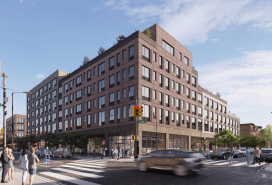Ask an Expert: Corrupt board president, kickbacks, and a leaky roof

Q. I have reason to suspect that the president of my co-op board for the last 14 years is in cahoots with the management firm, pushing through sweetheart deals with vendors recommended by the management firm in exchange for kickbacks. The final straw was when the roofing company hired by the building did such an awful job that I have had water leaking into my top-floor apartment for the last 10 months (it never did before). What are my options?
A. “Those are very serious allegations,” observes real estate attorney Robert Braverman. “In my twenty-plus years of experience, while this type of corruption is found to exist from time to time, most managing agents and board presidents are hard working, honest people."
Until you have actual proof that the board president is accepting kickbacks, tread very carefully.
"You should be worried about defaming an unpaid 14-year volunteer--who, after having gone through two Local Law 11 cycles, has probably developed some understanding of exterior repair," says property manager Paul Gottsegen.
Evidence of poor work or craftsmanship "is not evidence of wrongdoing per se on the board's part or on the president's part," says real estate attorney Jeffrey Reich.
For your first proof-gathering step, Braverman recommends reviewing the co-op's books and records in the managing agent's office. "While a shareholder does not have unfettered rights to review such information," he says, "a board and a managing agent with nothing to hide should not have a problem with a shareholder conducting a review."
"If the co-op’s financial records reveal potential problems," he says, "then you should consider retaining counsel and/or a forensic accountant."
Investigative lawyer Philip Segal suggests another evidence-gathering tactic: Conduct "quiet interviews with former employees of the management company and the contractors in question. They have less to lose in talking than people still on the payroll. Depending on how sophisticated the board president is, you could also look to find links between any of his businesses and those of the contractors and management company."
If you did come up with substantial evidence of corruption, you could report it to the district attorney's office and request a criminal investigation...but don't get your hopes up.
"It has been my experience that the D.A. is not very interested in this type of case, and when they do prosecute them, they do not do a very good job," says real estate attorney Dean M. Roberts. "Very few people are convicted for this type of fraud in my experience."
That may be less true when it comes to predatory managing agents: "I was involved with a building where the managing agent, using dummy contracting entities, bilked hundreds of thousands of dollars from an unsuspecting co-op," says Braverman. "In that case, we did get the district attorney involved and the individual wound up serving jail time in addition to having to make restitution. As for the board, no wrongdoing was ever proven, but at best, there was some serious lack of oversight by the board members."
If you can't find proof or don't want to go through the effort, your best course of action may be to remove the board president from the board.
Board members can be removed for cause by other board members, notes Roberts, but "given that this person has been the president for 14 years, I would doubt the board would be inclined to do anything here," he says. However, "shareholders always have the right to remove directors, either at the annual meeting or a special meeting called for that purpose."
"Check your operating documents for specifics," says real estate broker and asset manager Roberta Axelrod, but "typically, 25% of all owners can call for a special meeting for a vote of all owners to remove a member."
She also explains best practices for reducing the chance of corruption on any board: "All major work should be bid by at least three bidders, other board members should be present for walk-through with the bidders and the management, sealed bids should be sent to the supervising architect or engineer, names for bidders should be recommended by both the managing agent and the architect or engineer and any other board members who may have knowledge or experience."
As for your leak, notes Axelrod, roofs are generally under a 10-20 year warranty, so the board should investigate whether it can be repaired without additional cost.
Trouble at home? Get your NYC apartment-dweller questions answered by an expert! Send us your questions.



























